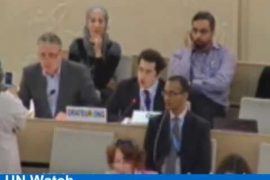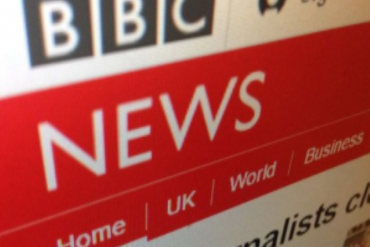Last night this Tweet appeared on the News Sniffer site’s timeline:
A look at the Media Lens Twitter feed seems to confirm the statement:
So what are the unannounced changes to this article for which Media Lens is taking credit?
(For a look at the evolvement of the whole article, see here, here and here.)
Version 1 of the article stated that: [emphasis added]
“Israel imposed the blockade after the Islamist group Hamas seized control of the coastal sliver in 2007.”
Version 2 (apparently changed after the Media Lens “nudge”) states:
“Israel tightened the blockade after the Islamist group Hamas came to power in the coastal sliver in 2007.”
Obviously, the revised wording is intended to make a difference to the reader’s perception of the manner in which Hamas came to control the Gaza Strip. Pro-Hamas commentators are often to be found insisting that Hamas was “democratically elected”: a statement which is, of course, only partly accurate.
In January 2006 elections were held for the Palestinian Legislative Council – the first of their kind since 1996. Hamas gained the majority of seats in that election – 74 out of a total of 132 – with Fatah winning 45 seats, the PFLP gaining 3 seats, and three other minor parties (including those headed by Salam Fayyad and Mustafa Barghouti) winning two seats each.
In February 2006, Ismail Haniyeh formed a new government, but Hamas’ refusal to renounce terrorism, to recognise Israel and to honour previous agreements between Israel and the Palestinian Authority prompted the introduction of economic sanctions on the PNA by Israel and the Quartet – i.e. the United Nations, Russia, the European Union and the United States.
In February 2007 an agreement was reached in Mecca between Mahmoud Abbas (representing Fatah) and Khaled Masha’al (representing Hamas) which brought about the establishment of a national unity government headed by Ismail Haniyeh a month later.
On June 7th 2007, a nine day armed battle began between Hamas and Fatah in the Gaza Strip which resulted in the deaths of civilians and UN personnel as well as over a hundred combatants, and during which – according to Human Rights Watch – war crimes were committed by both sides.
By June 14th, Hamas had gained control of the Gaza Strip, ousting Fatah and bringing about the collapse of the power-sharing unity government and the declaration of a state of emergency by the PA President Mahmoud Abbas.
After the Hamas coup in Gaza and the resulting division of the PA into two entities, Israel and the Quartet revoked the sanctions on the part of the PA still under the control of Mahmoud Abbas. Both Egypt and Israel tightened control of their borders with the Gaza Strip – now controlled by an internationally-recognised terrorist organisation with ideological and financial ties to Iran and its regional proxies.
The BBC therefore had it right when it stated in the above article that “Hamas seized control of the coastal sliver in 2007”. Not only did Hamas do so by means of violence, but it also eliminated its political opponents, creating what Dr. Jonathan Spyer has described as “an Islamist one-party statelet” in which democratic elections (which should have taken place in 2010) are nowhere on the horizon.
The subsequent changes to the BBC’s article therefore reflect a politically-motivated airbrushing of the facts which do not square up with the BBC’s obligations to either accuracy or impartiality.
Related articles
- BBC uses unverified quote to advance its narrative (bbcwatch.org)








